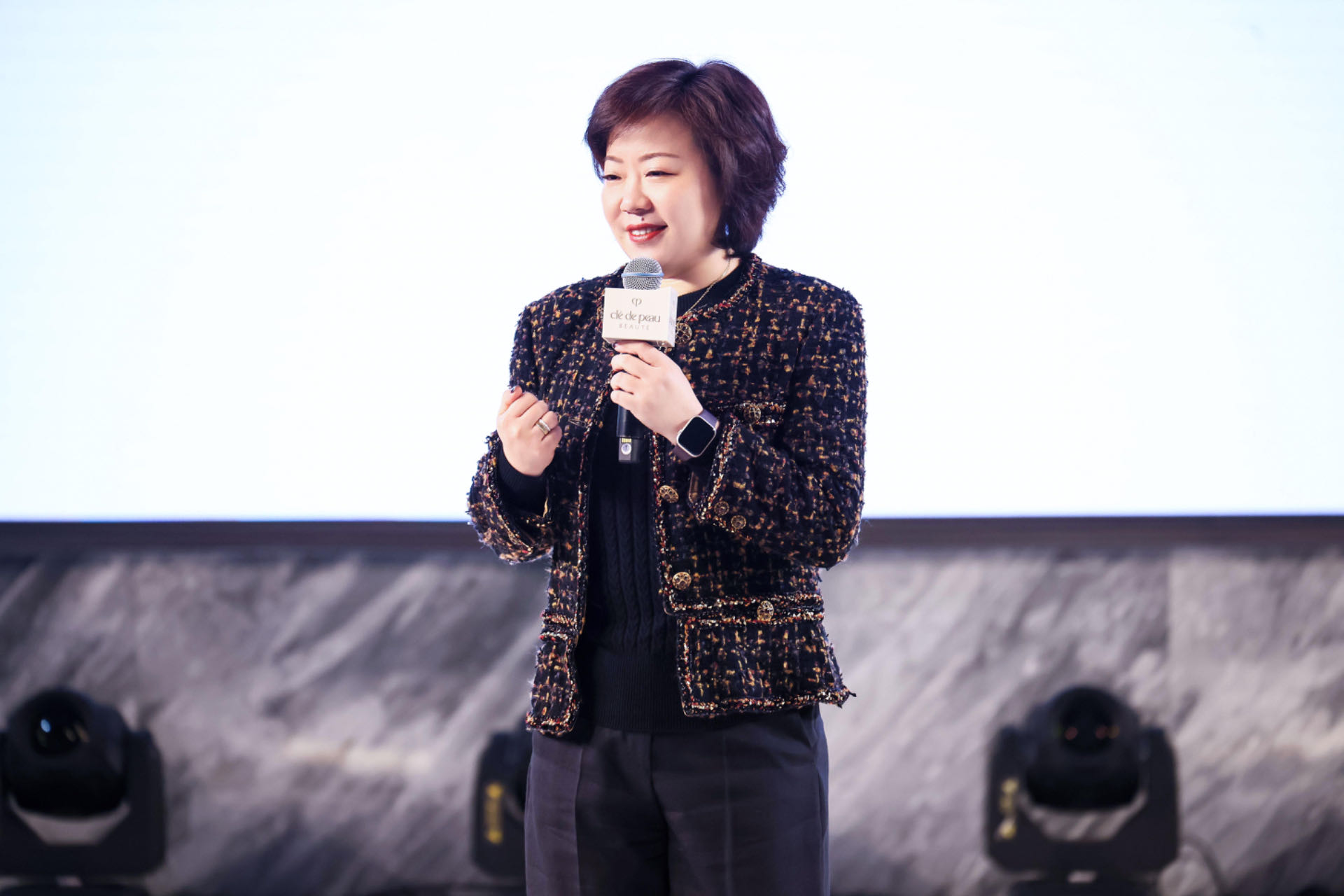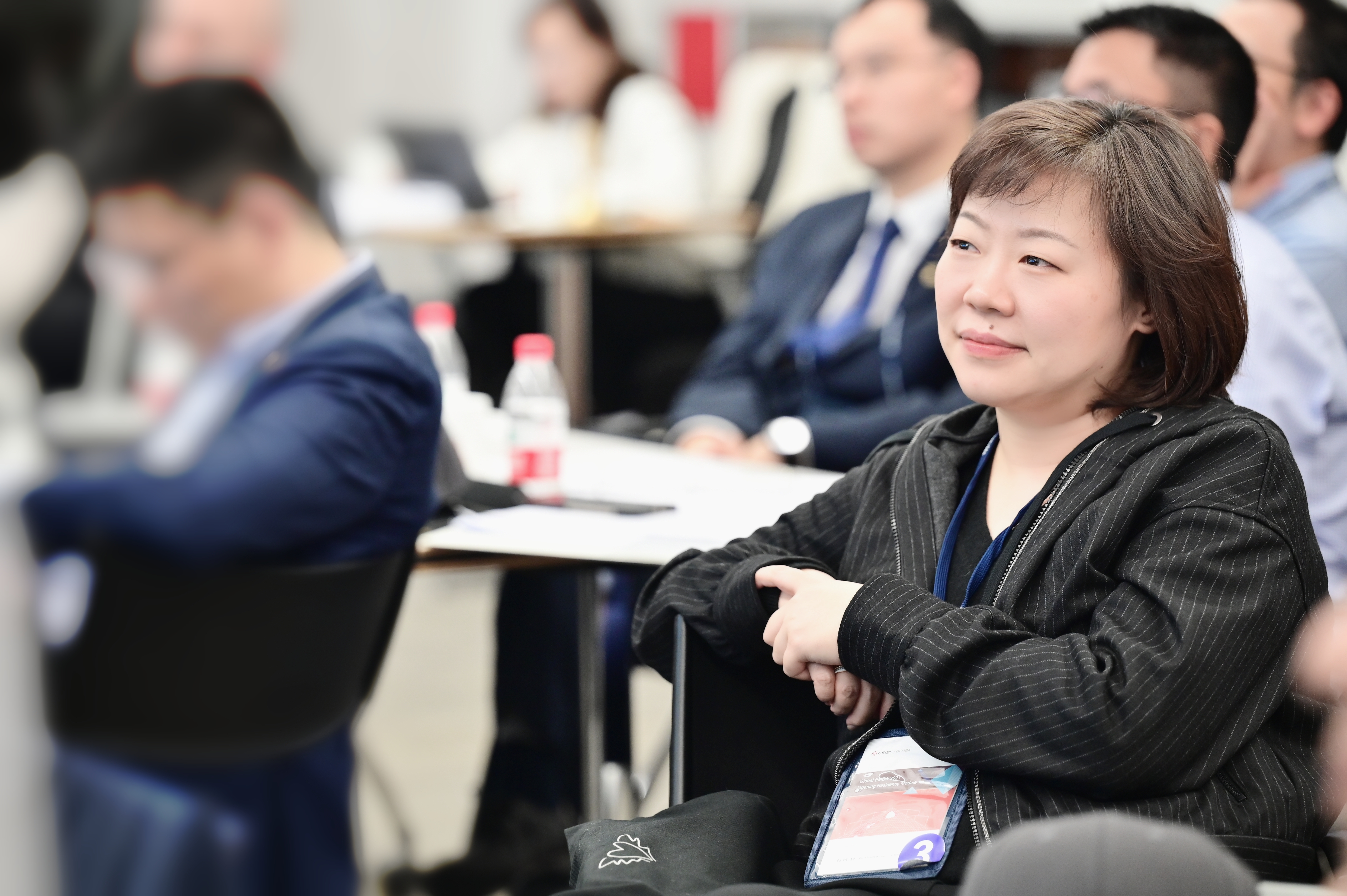Navigate the challenges in China's Cosmetics Industry

In 2007, ten years into her career, Jenny Sun (Global EMBA 2021) moved from the consumer electronics sector to the cosmetics industry, a career change that was widely considered dramatic, but came to her naturally. With nearly 20 years of experience in the cosmetics industry, she has led her teams in introducing numerous European, American, and Japanese cosmetics brands to the Chinese market, brands that were unknown in China at the time. Having witnessed the evolution of China's cosmetics industry from a brand-driven to a consumer-centric sector, here Sun shares her perspective on the current market and consumer trends. She also offers advice to other industry players on how to navigate the challenges ahead as the Chinese market evolves along with the expectations of its consumers.

Jenny Sun
General Manager, Luxury Brands
Shiseido China
Global EMBA 2021
Type "1998" into a search engine and you'll be greeted with a collection of yellowing, grainy old photos that seem to evoke memories from more than just the past three decades. At the time, China was not yet a member of the WTO, and its internet industry was still in its infancy. Nevertheless, the Chinese people, buoyed by optimism for a prosperous future, held on to their hopes and dreams that year.
Jenny Sun was one of those hopeful individuals. After graduating from college, she joined Sony, where she worked for a decade. As a newcomer to the consumer products industry, she was unaware of the monumental changes the sector would undergo over the next thirty years. Looking back years later, she realised that her experience at Sony may have set the stage for her future success in the cosmetics industry.
Fighting the odds until there's light at the end of the tunnel
From Chanel to Estée Lauder and then to Shiseido, Jenny has spent two decades in the cosmetics industry. She has built marketing teams from the ground up multiple times and led them in introducing many new foreign brands to China, including now-popular names such as Jo Malone and Origins. Her leadership roles have expanded beyond marketing to include sales and training.
Jenny currently serves as the general manager of Shiseido China's Luxury Brand Unit, overseeing the Chinese operations of THE GINZA, CPB, and Shiseido's fragrance brands. Meanwhile, she focuses on understanding the needs and concerns of Chinese consumers to refine marketing models and facilitate the implementation of the brand's global strategy.
The challenges facing cosmetics brands in China are very different from those of other consumer product categories. First, cosmetics brands emphasise brand power over product attributes. The more prominent the brand, the more it needs to maintain a consistent brand tone and image in the global market. Second, the cosmetics industry is particularly competitive, with a single department store potentially carrying more than a hundred cosmetics brands. Third, as cosmetics are fast-moving consumer goods (FMCG) with shorter purchase cycles and a greater product variety, it is essential for cosmetics companies to maintain a presence at nearly every marketing touchpoint.
"My team and I have run many successful marketing campaigns," says Jenny proudly, “But what impresses me the most are the times when we had to push forward against tremendous headwinds."
"At the end of August 2023, our brand was blindsided by a PR crisis that threw our business into turmoil. As a result, we found ourselves dealing with consumer distrust and complaints from our industry partners. All our operations came to a grinding halt as we hit a wall from the media to online and offline retail channels."
The timing of the crisis could not have been worse for Jenny and her team as they were preparing for the upcoming sales peaks in China's cosmetics industry during major holidays in the second half of the year, starting with the Mid-Autumn Festival and National Day, followed by the November 11 online shopping spree, Christmas, and New Year's Day. To make matters worse, the crisis made the team a target for head hunters. "Many head-hunters swooped in like vultures, trying to lure away my team members in all job types and business functions, from the office to the front desk," adds Jenny.
With little time left to carefully craft a solution, she quickly decided to make extensive business adjustments. First, she had to suspend all types of media advertising and high-traffic livestreaming e-commerce to avoid exacerbating public sentiment. Meanwhile, she led her team in developing flexible marketing strategies that targeted key consumer touchpoints to circumvent the risk of uncertainty created by regulatory restrictions or public sentiment. "At the time, we were preparing for the worst while pushing forward against the odds," Jenny recalls. As the Western proverb goes, 'every cloud has a silver lining'. Thanks to their tireless efforts, Jenny and her team finally saw a glimmer of hope on the horizon.
"Our performance exceeded our expectations. In the end, we even became one of the few cosmetics brands to climb up the sales rankings," says Jenny.
What's more, Shiseido has regained the recognition of both its consumers and partners. Jenny remains true to her original vision of winning over consumers through sincere and effective communication, facilitating their deeper connection with the products and the brand itself.
In the fourth quarter of 2023, Jenny and her team not only survived the crisis, but also emerged stronger from it. She observed her team's emotional evolution during this tumultuous period, transitioning from initial despair and helplessness, to bitterness, to the eventual elation of their comeback. The journey instilled in her and her team a newfound confidence and inspired them to cultivate patience and resilience in their daily work as well as their long-term strategic thinking.

The impact of younger generations – A change of pace for cosmetics
The cosmetics industry is now home to a disproportionate number of young people, including Gen Zers, who are known for their determination to revolutionise the workplace. Jenny believes that this new generation of employees has a unique worldview and harbours a desire to make a real difference, driving effective organisational change and development.
"I really admire Gen Z, especially their attitude toward the workplace," Jenny says. She even admires their reluctance to work unnecessary overtime, their disinterest in attending pointless meetings, their pursuit of personal interests, and their tendency to pursue multiple careers or interests simultaneously. "If I were entering the workforce now, I would follow in their footsteps."
It's not just the workforce, the consumption habits of the new generation of Chinese consumers have also changed dramatically. Young people are bold in expressing their opinions, which largely reflect the market trend. "If we get stuck in a groove, we will not get anywhere," adds Jenny, "If we really want to seek change, we must first have sharp eyes to recognise change and sharp ears to gather information."
"Of course, consumer brands need to gain more traction with consumers," Jenny emphasies. She believes that the new generation of employees has played an important role in driving the transformation of internal management and operations, increasing employee loyalty to brands and products, while clarifying consumer and market positioning. "If our employees don't have the passion and belief in our own products and services, how can we engage the customers to fall into our brands?"

Going beyond transactions – Cosmetics brands must deliver a sense of lasting companionship
Today's cosmetics industry has become consumer-centric. Jenny Sun has witnessed the evolution of China's cosmetics market, from its early stage of brand dominance, through a period of explosive growth driven by consumer traffic, to its current stage of maturity and intense competition.
Jenny admits that no brand can dominate the cosmetics industry forever. She points to the uniqueness of the Chinese cosmetics market, where international brands resonate with Chinese consumers. Meanwhile, the market continues to expand at a rapid pace. These dynamics have shaped the unique characteristics of Chinese consumers, including a strong capacity for learning, keen self-awareness, and rising social consciousness.
The relationship between brands and consumers has evolved beyond simply providing and accepting products. Today, brands must provide consumers with emotional value and a sense of lasting companionship. Consumers' choice of a brand is seen as a direct reflection of their lifestyle. In this sense, the challenge for brands is to establish themselves as trusted partners in the eyes of their consumers.
"These changes will make a big difference in our approach to interacting with consumers and deepening our connections with them," notes Jenny. "Players in the cosmetics industry need to find consumers who identify with their brands and think about what value they can provide. The intrinsic value of the brand and its social value will become crucial." Even in the FMCG industry, which is characterised by an intense rat race, the cosmetics industry is known for its especially fast-paced and high-intensity work. After nearly two decades working in this industry, Jenny is eager to gain new perspectives from other sectors.
"At CEIBS, I have the opportunity to gain insights from managers in different industries," says Jenny. She finally realised her long-held "CEIBS dream" by enrolling in the CEIBS Global EMBA in November 2021. Jenny likens CEIBS to one of the increasingly popular 'magic mirror' products that provides fitness coaching and classes. She feels that everyone in the Global EMBA community, including faculty, staff, students, and alumni, serves as coaches in the mirror, she can learn from their actions while also finding her own reflection in the mirror. "I may not be able to make myself well-rounded right away," she says, "but the very act of reflecting and learning from others is invaluable to me."
In 2023, Sun and her CEIBS Global EMBA classmates embarked on a Global Module to Italy to explore the path to success for luxury brands, tracing the roots of the ever-changing global luxury goods industry. Upon her return to Shanghai, she shared with her colleagues how Italian luxury brands juggle between upholding their traditions while breaking new ground. These are invaluable insights that reflect the increasing complexity faced by industries such as cosmetics as they try to hold on to their traditional strengths while exploring new ways to engage with an increasingly sophisticated and discerning consumer audience.
Still, no matter how marketing models may change, and no matter how many new competitors enter the market, Jenny and her team remain committed to providing consumers with a more enjoyable experience, strengthening brand power and brand value, and achieving sustainable development through quality products and services.











